|
The Downers Grove Writers' Workshop (DGWW) has a history of successfully helping writers in all stages of their craft refine and hone their skills and their works. Those who have gotten the most out of the experience have found the following guidelines to be helpful.
Attend regularly. Most writers benefit just as much from listening to other writers’ presentations and the resulting discussions as they do from the discussions around their own works. Plus, if you want others to aid you, it’s a good idea to be there for them as well. Regular attendance also helps you stay current with what’s happening in other people’s work as it progresses over time. Be prepared. There are several things you can do to optimize the time you have to present and the feedback you receive when you share your work:
Present like a pro. There are several things you can do to optimize the usefulness of the feedback you receive.
Give as good as you get. You’re here to get feedback from others, and they’re here to get feedback from you. These are some pointers to make it effective and valuable.
1 Comment
How is a writer inspired to find something to write about? And how is a writer inspired to follow the many threads a single idea can generate? These are questions I have asked myself many times over my lifetime and continue to ask as I transition to an area of writing that is much more creative than the technical and objective writing that I wrote during the course of a long and satisfying career. Google’s English dictionary, provided by Oxford Languages report inspiration as “the process of being mentally stimulated to do or feel something, especially to do something creative” and as “a sudden brilliant, creative, or timely idea.” I especially like the first part of that definition, the idea of being stimulated to engage in some action or to feel some emotion. Isn’t that the idea of writing, to move someone to act or feel? I researched several well-known authors to learn what their experiences have been with finding ideas and inspiration and found they are relatively simple. Mitch Albon, author of “Tuesdays with Morrie” reported on his website that he had been “exposed to people dying at various stages” of his life. He states, “my inspiration tends to come from people I know." Morrie, with his unique personality – and unique approach to dying – was the inspiration for “Tuesdays with Morrie...” He states “I have realized that loss, love and finding meaning in your life while you are here are all universal themes.” Judy Blume who has authored many best sellers continues this theme. On her website she shares that she once feared the question about inspiration, but “I know that ideas come from everywhere – memories of my own life, incidents in my children’s lives, what I see, hear and read – and most of all, from my imagination.” Donna Tartt, author of “The Goldfinch” is reported to have been inspired by a painting by a student of Rembrandt’s whose life was tragically ended at a young age in an accident. I found this theme of finding inspiration in everyday occurrences in all of the writers I researched, and it reflected my own thoughts on this process. Writers are people watchers who imagine the lives of those they see walking down the street. Writers are listeners who listen to their 90-year-old neighbor and realize she is a Holocaust survivor, when the numbered tattoo on her arm becomes visible. Writers embrace ordinary events and embrace a willingness to look at our world and let our imaginations soar. Inspiration comes in myriad ways which we all seek and interpret differently. Every day occurrences become opportunities to open our senses and view people or events in different ways. Writers also ask questions. Driving down the street and watching someone try to cross at a busy crosswalk... why is that person walking? Not driving? What moves the immigrant to leave their homeland and journey to a country foreign to them? Is it a hope for a better life, a job change, better climate? The writer understands it could be one or all of these things and begins to imagine their story. What stories could the generation before us tell if we were willing to listen? So many stories are lost because by the time we think to ask the right questions, our parents and grandparents are no longer here to answer. Where would each of us be if we had taken different paths in life? Would we choose differently using hindsight as a guide? Since the first petroglyph on a cave wall through our evolution to our present, the writer seeks to describe and understand all of these things and bring focus to our respective experiences inspiring the reader to act or feel. I remain fascinated by the ability of the author open themselves to all of these drivers and create dynamic and interesting characters, storylines and worlds in which their characters live. Each question has a story to share and opening up to the story can lead to our inspiration.
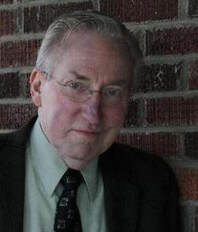 A recent submission to one of the workshops I attended got worked over pretty well. One of the members offered regrets after the meeting for having been so critical. She really didn’t need to do that. I welcomed and appreciated her honest evaluation, much of which was spot on. I had been just as forthright in my comments of her work. It was a fair exchange. But more than that. Getting critical, i.e. fault-finding commentary, is why we do workshops. I’m coming to the conclusion that we’re often just too nice each other. We’re told to ‘sandwich’ our critiques. Say something kind, pick your nits, then close with something positive. After all, we’re supposed to encourage each other. It’s true that new writers may need reassurance and a little coddling. I would never want it said that I drove someone away from writing. Nor do I want to hurt the feelings of anyone with the courage to put their thoughts, their imagination, their vision of the world on a piece of paper and share it. I’m pretty sure we all feel that way. We all want to be encouraging. That’s the problem. Those of us who are serious about our writing don’t need to be encouraged to write. We need to be encouraged and TAUGHT to write better. Many of us are not beginners and we’re not going to quit because someone’s opinion of our work was disapproving. That’s especially true when we respect and admire the talent and skill of the critic. In that regard, I am fortunate. I count the friends in all the workshops I attend to be among the many blessings God has showered on me. I try to give back as well as I am able. It’s the least I can do. If your feelings are hurt by what sounds like a snarky comment, accept your feelings and then get over it. Give it a day or so and then evaluate the substance. If there’s anything useful in the critique, accept it, learn from it, and make your revisions. Fredric W. Meek was born in Chicago and grew up in the western suburbs. He majored in history for his B.A. and received his J.D. from DePaul College of Law. His first novel, THE COLLEGE, published in 2013, was a story about the Vatican and a most unlikely pope. Fred's interest in the ancient world and the foundations of western civilization, led to a series of historical novels of the Roman republic: FINIS REPUBLICAE, INCEPTUM FINIS, and TRIUMPHUS PLEBIS. The common themes of all his books are family and friendship.  I grew up at a time and in a rural place where the communication via the written word was not valued nor taught. I can’t ever remember being assigned an essay, asked to write a poem, or even being required to take an essay-type test. Our only writing requirement in high school was writing six 50-word book reports during our senior year. What I learned about writing I learned from reading. From the moment I read my first book that went beyond the doggerel of toddler’s books, I was hooked, reading everything and anything I could find. I was the town and later the high school librarians’ favorite. The idea of being able to immerse myself in a story of pirates or horses or whatever was available was manna from heaven for me. At Ohio University, freshman composition was my downfall and my salvation. I’d read all those books so I must know how to put words together on paper. My lack of the basics of writing, let alone my understanding of the magic of expressing yourself as authors did in the books I read was horribly apparent. I struggled through the two semesters until we received one “creative” writing assignment and for the first time, the professor called me into her office to give me some small praise for my effort. In my sophomore year I took a short story writing course and, although I still struggled, I could see progress and fell in love with the idea, at least, of being able to tell stories like those I’d read. Fortunately, due to the kindness of my professor, I was encouraged. If he had told me how awful my really stories were, I would have quit then. I tried a journalism course and once again my lack of the basics stymied me. But at the same time I discovered real literature and began to devour books with more substance. On a whim that only a 19-year-old would understand, I pulled up stakes at the end of my sophomore year and headed for California, based on a rumor among the writing nerds I hung out with that there was a professor at the University of California at Berkeley who was a genius at teaching people to write poetry. I never found that professor. This was the 1950’s pre-hippie Beatnik Berkeley and I got a room in the midst of the “scene.” I quickly ran into the realities of an intellectually stringent school and although UC admitted me (California at that time had open enrollment. Can you imagine?), my barely passing grade in composition was unacceptable and had to be retaken. That’s when I learned to write. My ego still burns when I think of that professor. He minced no words and insisted on a disciplined, logical approach. I hated him, sweated and learned the basics. I also began writing more and, I think, better stories. There was much that was phony and wrong about the beatniks, but I have fond memories of the creative writers who took me under their wings and added creative writing skills to the exposition skills I was learning in my courses. My next lessons in writing came in the US Army, joined when school savings and jobs dried up. Shipped east, I became the post newspaper editor for a small post outside of Washington, DC. More a four-page newsletter than a real newspaper, I was responsible for every word, every week. It gave me the kind of experience I needed in meeting deadlines and turning out copy whether I “felt like it” or not. In my spare time, I continued to write fiction and took creative writing courses at George Washington University in Washington. By the time I finished with my three-year military tour and a year back at Ohio University to graduate with a BA in English Literature, I had determined my path: Obtain a master’s degree and combine teaching with working toward becoming “The Great American Novelist.” Reality again intervened. By the time I finished all my requirements for my MA at George Washington University, I was working in The Pentagon as speechwriter for four generals and during my job search for a teaching position, learned I would have to take a 50% pay cut to obtain an entry level college teaching position. With a wife and child that was out of the question, so for the next forty years although I was a writer as a journalist and public relations counselor, my dream of making my living as a writer of stories was pushed into the background. My stories where in the background, but they never died. I continued to write during those years--a novel, poetry and some short stories. And what I couldn’t write I recited to my kids. They still remember the bedtime stories I weaved of my exploits and even believe some of them actually happened. I think the greatest thing I learned about writing during those years was the joy of telling or writing stories for its own sake. I spent every workday turning out copy for others. It gave me a great appreciation for the luxury of simply spinning a story or a poem for my own enjoyment without expectations of gain or accolade. That was my main goal when I retired at 67 years old, nearly 16 years ago. During that time I learned the craft of writing fiction through seminars and courses, but mainly through the people who have made up the Downers Grove Writers Workshop. My sounding board and audience through two novels and numerous short stories and poems, they helped me fulfill my dream of becoming a fulltime story-teller, even if the audience is measured in the dozens rather than the millions I had hoped for when I was young and foolish. Shakespeare’s Hamlet says, “…The play’s the thing,” to bring out the truth. I say “the stories’ king,” and I don’t think Shakespeare would disagree. 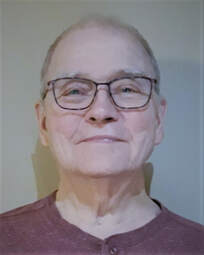 Larry lives in Downers Grove with his wife, Carole and various foster dogs. He has three grown children who have produced five Grandchildren for him to brag about and spoil. He retired fifteen years ago and has been a member of DGWW for most of that time producing two novels and numerous poems and short stories. 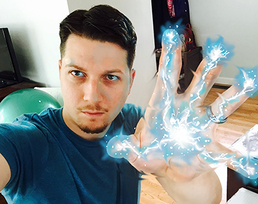 ' There are so many of us who don’t 'make it', and by this I mean getting rich, famous, or having it all. This is especially true with music. As a former member of a high school garage band, I can attest to this. I knew a lot of other musicians at that time, and they too can be counted as the many who never 'made it'. Ultimately it's not the 'making it' that's important, but the attempt that becomes a catalyst pushing you to put yourself out there and explore. This drive tends to go hand and hand with the growing pains of adolescence. It is that journey, that coming of age, that is so compelling to me. The journey we all go through to become an adult is so uniquely personal and yet so relatable. Like a well-known song that everyone can sing along to, but it has a different meaning to each of us. It is that time frame, under the guise of a struggling punk rock band, I try to capture as a setting for my latest graphic novel. I have an amazing amalgamation of stories and memories about neighborhood bands, open mic gigs, and certain musicians who were, well, incredible assholes that were impossible to work with. When we are young it feels like life is beating us up, and sometimes it truly is. We may express this as the 'everything sucks mentality', and sometimes it does suck. At this point many of us realize everything is not as easy as the media and our culture made it seem. We end up working for the man just to keep our dream alive all while trying to divide our attention between friends, family, work, and relationships. Our dreams become utterly exhausting. Fame is such a fleeting thing, and yet something compels us to push through this 'suck' . Maybe it's naivete or misplaced confidence, but somehow we endure and keep going. I think there are a lot of great stories in this particular period of life. I'm looking to capture the feel of growing up in this culture at this time. Consider how I use Charles Shultz brilliant comic strip; Peanuts as an influence. Peanuts gives us a glimpse into young minds trying to figure out the adult world. It gives us a feeling of neighborhood, and social aspect. And that has influenced BBCM and my group of characters and ensemble cast, although they are quite a bit older than the Peanuts gang. My goal was to really get to that adolescents angst. Another, completely different example, Bryan Lee O’Malley’s Scott Pilgrim, a monumental six volume graphic novel tower of awesomeness, encapsulates teen angst and struggle in a very real way. When I read this story, I felt like O’Malley ripped parts of my life out and put it in his story. He nails the familiar situation of adolescents. He sprinkles maintaining life and trying to 'make it' in with the challenge of constant distractions like relationships and wondering if you’re ever going to manage it all, let alone succeed. O'Malley brilliantly captured what I, and many of my peers went through at that age. If you have not read Scott Pilgrim. Do yourself a favor and devour this graphic novel series. If you have ever been in love, young, or in a band you will especially dig it. My goal is to make a tale relatable to as many people as possible. Like a dream you can’t quite remember or a song that you can hum the tune, but don’t know the words to, it should feel like you know it intuitively. Letting go of the specifics gives me the opportunity to do creative world building which enriches the story and allows me to really work on the identities of my characters. Things like where they live, how they dress, fake names, band names and all the things that mirror the adolescent attempt to pull away from what you know and make your own thing. Which, by the way, is the essence of the punk rock lifestyle. You better believe I’m goanna get all philosophical here too. I'm taking a lot of philosophical ideas and melting them into this story because it will be paramount for helping the characters through to the end. The journey of world building and writing is long. Like my story, it's littered with pitfalls, setbacks, budget concerns and obstacles galore. The story is in my head, notes are made, outlines and scripts to be produced. The next step is getting it all written. Because I think in pictures not in words, for me there is an interpretation that happens during the transfer of visual thoughts to written words. They give me a road map for the physical drawings (graphics). As stated before; 'long is the journey', 'Great' maybe 'is the reward'. We have to keep plugging away and keep noting those interesting aspects of life that could add to our story. Getting out there making something for yourself, not listening to naysayers that don’t understand … sounds like a punk rock song to me. Maybe that song is called 'Make It'. Kody Mooneyham is a Graphic Artist/Writer living in the western burbs of Chicago. He work on stories in both traditional and digital mediums. Most of the time he does both the writing and drawing. He has digitally published three web comic series: This Is Making Me Nervous, Top Shelf and Space-O-Nauts. I currently working on an epic punk rock journey of a band called Big Blue Corporate Machines. https://www.facebook.com/ko.d.mooneyham/, https://twitter.com/Ko_D_Art https://ko-d_art.artstation.com One day all our fictions will come true, today we are one step closer! 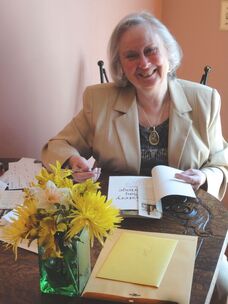 I’m often asked, “What is the most important advice you can give aspiring writers?” I tell them: Don’t wait for that “right time.” Open a journal and start today. Too much time is wasted doing nothing when it takes so little to do something! An understanding of your expectations will avoid disappointment. It will also dictate some of the rules you will choose for your work. For instance, if you are writing for yourself or your family, promoting your book will not be a priority. Be honest and don’t neglect identifying your motivation! Should you give up your interest and write what is popular? Definitely not, but you should know the consequences of writing a less popular genre. If you choose an unpopular subject, your work will be harder to sell if that is your goal. Readers expect characteristics of the genre to be followed. WHAT ABOUT RESEARCH?
GETTING READY TO WRITE 1) Find a comfortable place to work – free of distractions. (It’s not a perfect - world do your best.) 2) Pick out some materials dedicated to writing. Surrounding yourself with favored writing materials will give you pleasure and put you in the mood to work. 3) Computers are not essential for a first draft, but eventually you will need a computer for editing and to prepare your manuscript for submission if you want to publish your work. ** Don’t forget to save and back up your work and label all drafts clearly. It is too easy to confuse multiple drafts. Think carefully about naming your files and be consistent in naming and the folders you store your files in. There is nothing worse than spending hours looking for a chapter and having to rewrite it because it got into the wrong folder. Before you begin putting words on paper, you still need to make a few decisions. Yes, this is true even for writers who don’t outline but write “by the seat of their pants,” like Stephen King. Now start writing! https://www.scribophile.com/academy/using-first-person-pov A Lemont resident and author of local historic mysteries, Pat Camalliere wants people to know what a great place this part of Illinois is. “This is why my books are set here. It’s a fascinating area, geographically unique with an important history, many quirky stories, and ghost lore. It’s a great fit for a mystery series,” Camalliere says. Camalliere’s first novel, The Mystery at Sag Bridge, introduces amateur historian Cora Tozzi, who is haunted by the ghost of a young woman killed in a graveyard at St. James at Sag Bridge in 1898. In the second book in the Cora Tozzi Historical Mystery Series, the award-winning The Mystery at Black Partridge Woods, Cora writes a book about a Potawatomi Indian woman in 1817 who turns amateur sleuth to get her son out of prison. The third book in the series, The Mystery at Mount Forest Island, is about the Chicago mob and a deserted golf course and will be released later this year. All feature area Forest Preserves. Camalliere serves on the boards of the Lemont Historical Society and Lemont Library, and is a member of Sisters In Crime, Chicago Writers Association, and the Society of Midland Authors. She speaks locally on a variety of topics and publishes a blog of historical articles about Northern Illinois, available at www.Patcamallierebooks.com. Contact Pat through her website. |
AuthorsThe Writing Pond Blog is home of The Downers Grove Writers Workshop. It is a compilation of members contributions. We love to write and writing about writing is one of the many ways in which we help to each other to become better and more consistent in the craft. Archives |


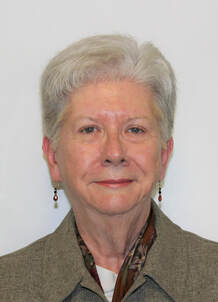


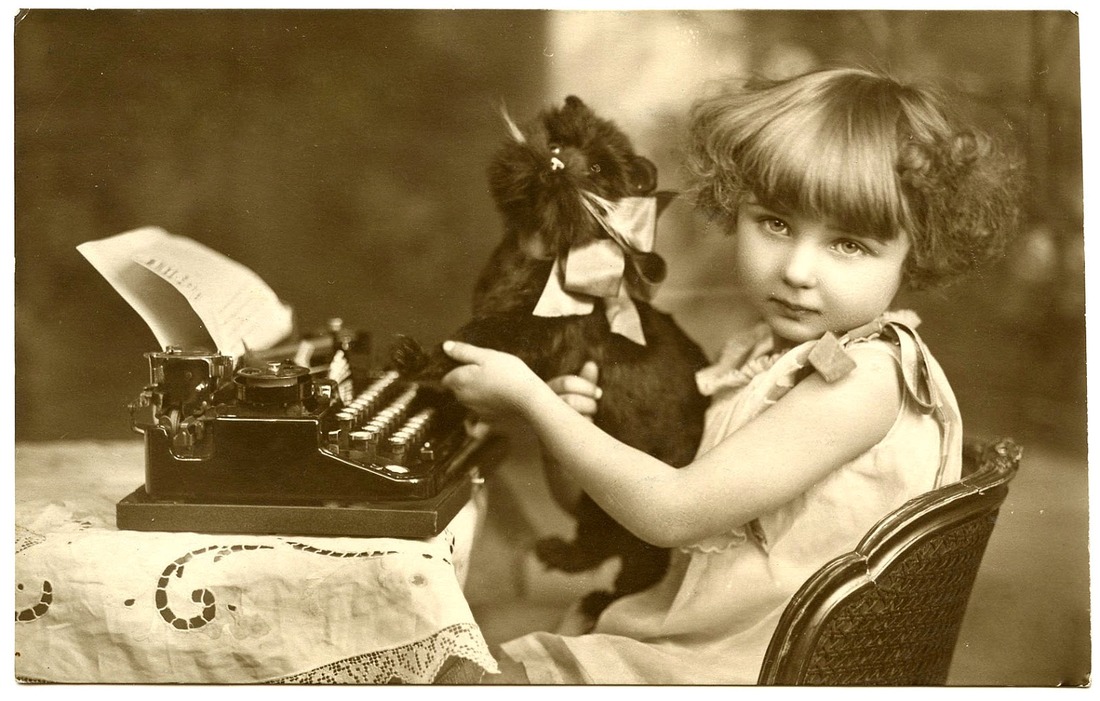
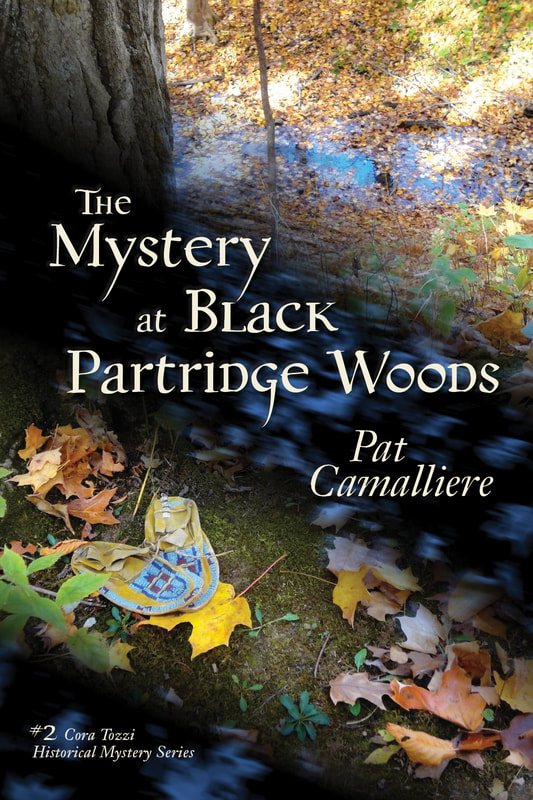
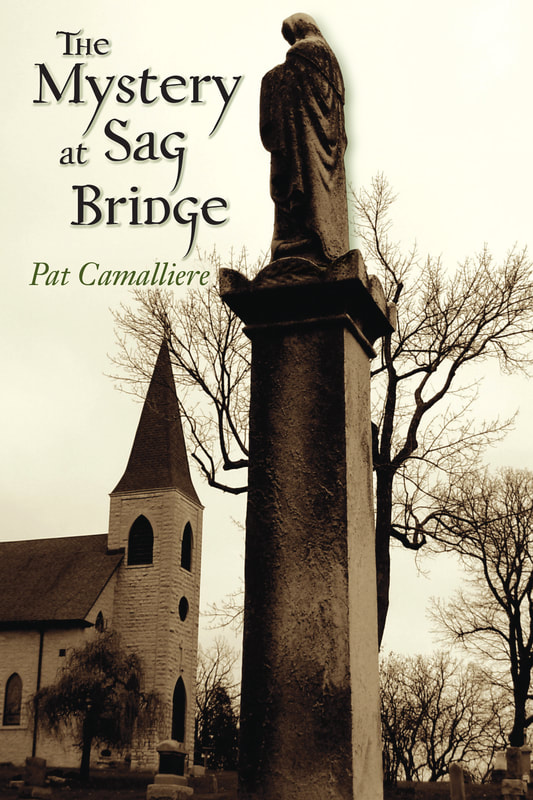
 RSS Feed
RSS Feed